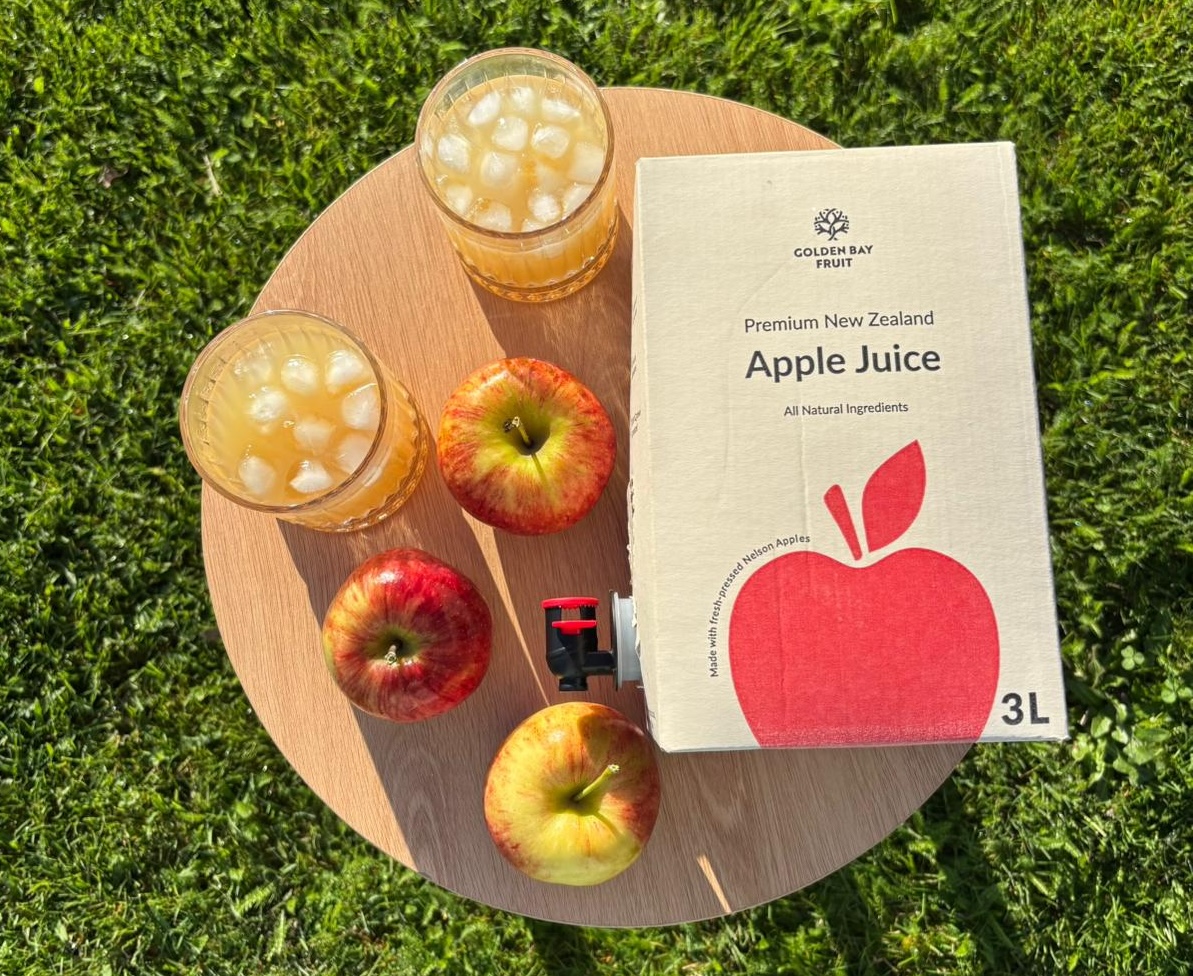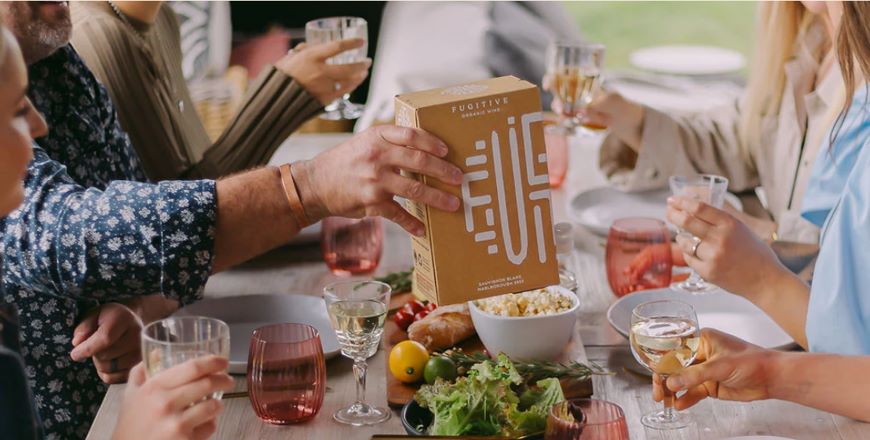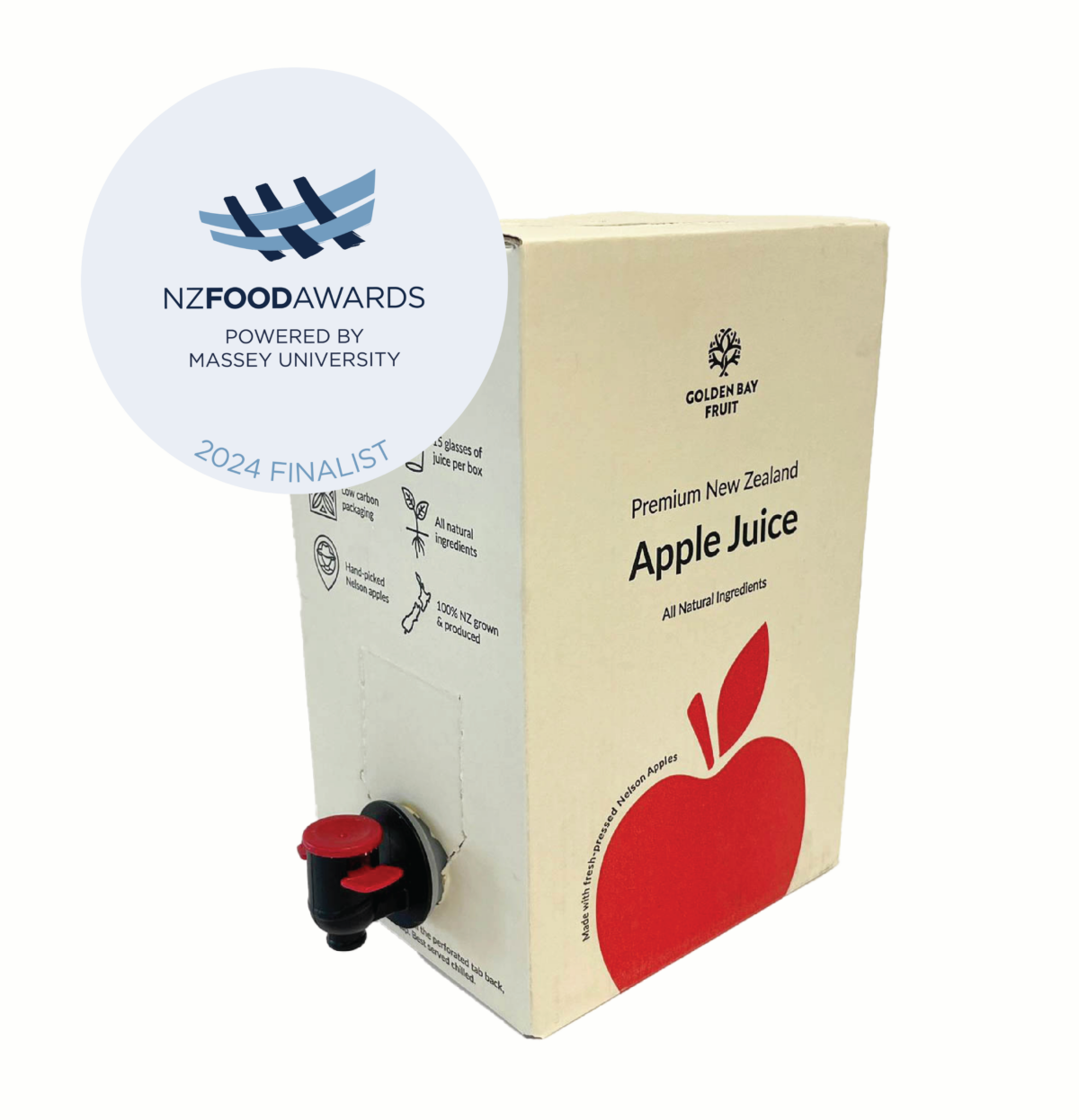Why We Make Juice
Golden Bay Fruit has launched a fresh take on an old idea—and it’s making waves for all the right reasons.


“It’s a bit of a ‘back to the future’ moment,” says Eleni Hogg, Marketing Director at Golden Bay Fruit, who led the project. “This format is actually excellent from a food safety, storability and carbon impact perspective. It’s also very user-friendly. It just got a bad rap from its associations with binge drinking and cheap wine. But now, with more understanding of the environmental benefits and premium wine brands reframing it—like Juliet out of California or Fugitive Wines in Aotearoa—we’re starting to see a renaissance. People are ready to revisit their bag-in-box preconceptions and realise boxed products can be premium, eco – and even cool.”


- Pure Apple – tangy, crisp, and refreshing
- Pear & Apple – mellow and smooth, not too sweet